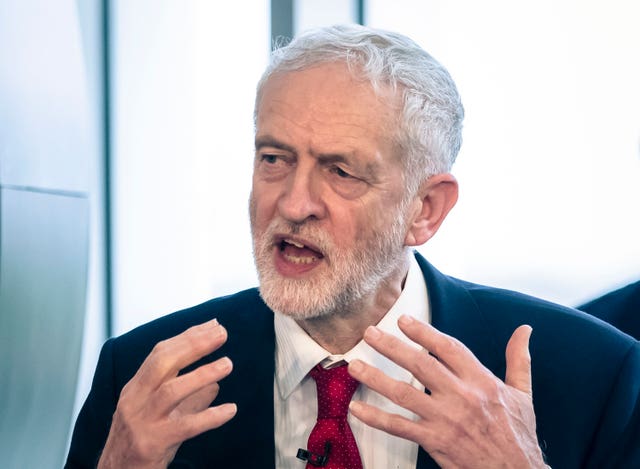May facing massive Commons defeat in Brexit vote
Commons Leader Andrea Leadsom says PM determined to deliver on her deal, regardless of the result in the House.

Theresa May is braced for a potentially crushing Commons defeat for her Brexit deal after an eleventh hour appeal for support apparently failed to win round critics.
On a historic day at Westminster MPs will finally deliver their verdict on the Withdrawal Agreement hammered out with Brussels on Tuesday evening.
With more than 100 Tory MPs having declared their opposition to the plan, there was speculation the Government could go down to one of the heaviest defeats of modern times.
The Prime Minister has insisted she is focused on winning the vote – telling Conservative rebels on Monday evening they risked handing the keys of No 10 to Labour leader Jeremy Corbyn.
However The Daily Telegraph quoted one Cabinet source as saying it would be “hard for her to carry on” if she lost by more than 100 votes.
The Leader of the House Andrea Leadsom insisted Mrs May was determined to continue fighting for her agreement in the best interests of the country.
“Anything that looks like that level of disruption would incredibly bad – both for the country and for Brexit,” she told BBC2’s Newsnight.
“So I think the Prime Minister will remain determined to deliver on this deal. Her purpose is to leave the European Union in line with what people voted for. She could not be clearer about that.”
The deal suffered its first official parliamentary defeat in the House of Lords on Monday night as peers voted by 321 votes to 152 – a majority of 169 – to reject it.
Mr Corbyn indicated he was finally ready to table a vote of no-confidence in the Government if it loses in the Commons.
“Don’t be concerned, it’s coming soon,” he told a meeting of the Parliamentary Labour Party.

It would appear unlikely Labour can muster enough votes to force a general election, with both Tory rebels and the DUP indicating they would continue to back the Government in a confidence vote.
However Downing Street has given little indication as to how the Prime Minister intends to proceed if she is defeated.
Under the terms of an amendment passed last week, she must table a motion on her Plan B by Monday – although in practice she is unlikely to want to wait that long.
Some reports have suggested she could fly to Brussels – possibly as early as Wednesday – in an attempt wring further concessions on the crucial issue of the Northern Ireland “backstop”.
But that could prove problematic if she has suffered a massive defeat, with EU leaders reluctant to give ground if they believe it is simply impossible for her to get the deal through the Commons.
Alternatively, she could to bring back the deal to the House for a second – or possibly even a third – time in an attempt to wear down the opposition.
Some MPs claimed to have detected some movement towards her position after she addressed a private meeting of Conservatives MPs at Westminster on Monday evening.
So far, however, the numbers contemplating backing the deal would appear to fall far short of what is needed to affect the final outcome.
Mrs May will make her final appeal when she winds up five days of debate in the Commons before MPs head to the division lobbies.
Voting is due to begin at 7pm and could continue for around two hours, depending on how many amendments Speaker John Bercow calls before the final “meaningful vote” on the deal.
Speaking in the Commons on Monday, Mrs May acknowledged the deal was “not perfect” but urged MPs to give it a “second look”.
With some pro-Remain MPs backing moves to take control of the parliamentary timetable if she is defeated, she warned any attempt by the House to thwart Brexit would be a “subversion of our democracy”.
On Monday, Conservative former ministers Nick Boles, Sir Oliver Letwin and Nicky Morgan put forward a plan to give Parliament control over the Brexit process.
Their European Union Withdrawal Number 2 Bill would give the Government three weeks to seek a compromise that can get through the Commons and allow the UK to leave the EU on March 29 as planned.
If that failed, the Liaison Committee – made up of senior backbenchers who chair Commons committees – would be given the job of coming up with its own compromise deal, which the Government would be legally required to implement if approved by MPs.
However, Liaison Committee chairman Sarah Wollaston poured cold water on the proposal, saying backbenchers constitutionally “cannot take over conducting a complex international negotiation”.





